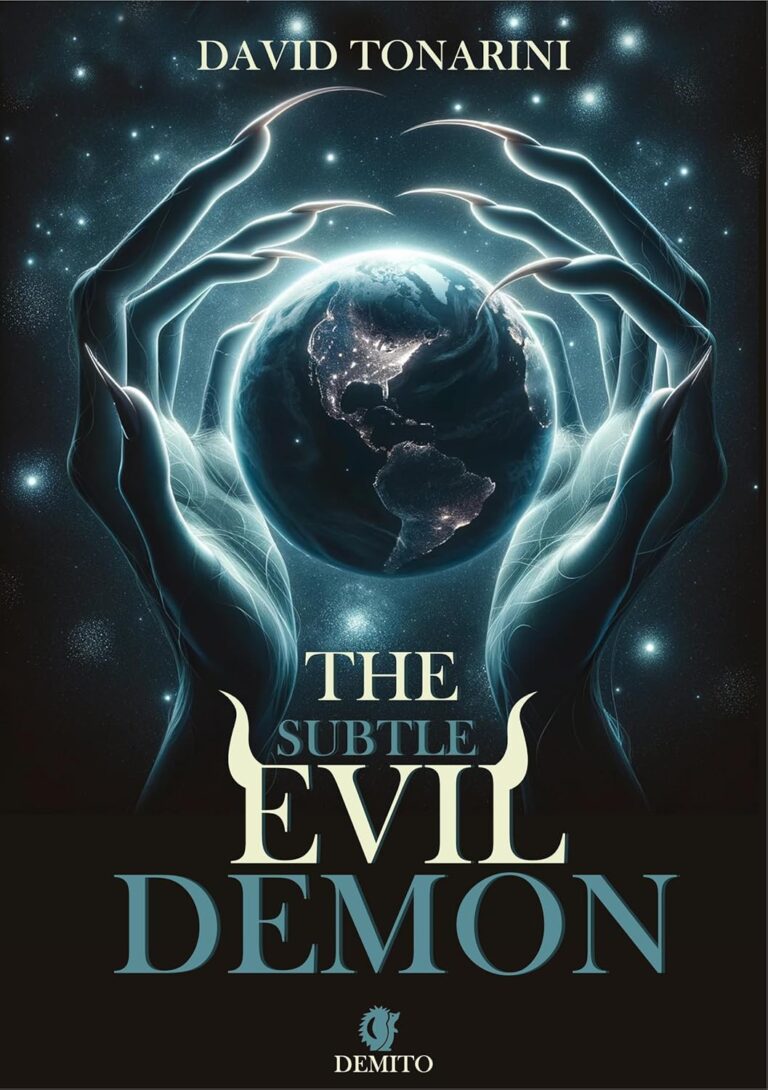Today I’d like to share with you an interesting story coming from Hindu sacred texts. It is a myth describing a supernatural meaning of thunders. The story in itself is beautiful and worth knowing simply for that. One reason I like it so much, however, is because I think it is the perfect opportunity to reflect about the meaning of spirituality and how we can make our lives drastically better by finding such dimension. As always in these pages, the focus will be about how we can use this to enhance our lives regardless our beliefs, and that spirituality can be completely independent of any specific religious framework (or appreciated even by those who have no religious or supernatural beliefs at all)
I slightly rephrased this story, especially the final part. As a writer, I guess I couldn’t help myself and felt the urge to add some personal twists on something I find so beautiful. This is not meat to be disrespectful, on the contrary, a token of appreciation. The core of the story, anyway, is pretty much taken directly from the Brihadaranyaka Upanishad (part V, chapter III). For those unfamiliar with Hinduism, the “Upanishads” are collections of ancient sacred text. Although I do not fancy direct comparisons across elements from different cultures, you may look at them as the books of the Bible, except for Hindu people.
The Three Great Disciples
Among the children of Prajapati, the Creator, there were three beings: gods, humans, and “asuras” (demons). They all lived with their father as students. When they had completed the alloted period of study, they all decided to ask their father for a final instruction on how to live from now on.
The gods when first, and asked: “Venerable One, please give us guidance”. Prajapati answered by uttering only one single syllable: “Da“. Then he asked “Have you understood?”
“Yes”, the gods said, “You have told us damyata, which means: control yourselves.”
“Very good. You have understood”, he said.
Then the human beings approached. “Venerable One, please teach us”. Prajapati answered again with the very same sillable “Da“. Then he asked: “Have you understood?”
“Yes”, they said. “You have told us datta, which means: give, share with others”.
“Very good. You have understood” he said.
Finally, the “asuras”, the demons, approached Prajapati. “Venerable One, please instruct us”. Once more, Prajapati uttered “Da” and then asked if they understood. “We have. You told us dayadhvam, which means: be compassionate”.
Prajapati was pleased, and to all of them he added: “You all understood well, my children. From now on, whenever you feel lost, keep this in mind. At those time when dark clouds grow all around, the sky is covered by flashing lights, and you are called by the powerful rumble of thunders, fear not and remember. That’s my heavenly voice coming from the sky telling you “Da“, “Da“, “Da“. So that you can all keep in mind my instructions: control yourself; give to others; be compassionate.”
Commentary
I wanted to share it because this is, along with Job’s Book from the Old Testament, possibly my favourite story which illustrates the benefit of holiness and spirituality in everyday life. I know there would be a lot of controversy if I used the Bible for that, as that may end up with one more battle between believer and non-believers. A battle which, I strongly believe, harms both.
The reason I find this story so insightful, is that, well, I am not a Hindu, and I have never been close to Hinduism. It was not a cultural influence to either accept or battle with, as may be the case for Christianity. Talking about Prajapati and Asuras is not as emotionally charged as talking about God, Jesus, Heaven and Hell. It is not something anyone would take literally or be obsessed on its literal meaning or about these characters objective physical or metaphysical existence. Thus, it can show us an example on how we can use spiritual elements without having to sacrifice rationality and a perspective on life compatible with science*.
And the interesting point here is that you don’t have to take this story literally to find it beautiful and insightful. Same goes for stories, rituals or traditions from any cultural background. You can accept them as a whole, of course, and there is nothing wrong with that. So you can be (or become) a Hindu, for example, and find delight and inspiration in the story above. But you don’t have to. You can appreciate it and cherish it’s meaning regardless of what you believe or what your cultural background is. You don’t need to think: “well, does an entity called Prajapati actually exist?”
I think that question is completely irrelevant to the beauty of this story. Rather, what I find insightful, is that we can use as a mental tool, a trigger for practicing something that makes our life better. Many people, when they hear the rumbling sound of a thunder, may be scared, annoyed, or simply couldn’t care less. This story is a tool, a mental prompt to transform something we are negative or indifferent to, into something beautiful and meaningful. Since I learned that story, whenever I hear a thunder, I have an opportunity to think about life. I don’t hear merely the sound of a thunder. I hear “Da-Da-Da“. I hear a heavenly voice from the sky telling me to remember to be self-controlled, generous and compassionate. I feel connected to the universe and to people around me. I have an opportunity to take, for an instant, a pause from being obsessed about the everyday practicalities we are all concerned with(rightfully, of course), and take a little while to find a greater depth and meaning in this mysterious and complex thing called life. Whatever the ultimate metaphysical reality beyond the material world may be, that’s irrelevant to finding this bliss in everyday life moments. What matters is not whether Prajapati is real or not real. What matters is not whether Asuras are real or not real. What matters is that I have a small ritual I can regularly use to improve my life (and, arguably, others’) by taking time to reflect upon or develop skills such as: being compassionate, taking control of my own life, helping others, finding beauty and interconnectedness among the things of the world.
Ultimately, this is pretty much a large portion of what the Sevenfold Path is about. There are many small rituals I go through in my life, sometimes daily, and which are intended to provide a greater meaning and a spiritual context to everyday life moments. For example, having a meal is not just about eating. Going to bed is not just about having a sleep. Crossing my apartment’s door is not merely about “coming home” or “going out”. They are all about having a spiritual experience, practicing mindfulness, cherishing happiness and feeling genuinely thankful about one’s live.

Same goes for our Body-Mind practices which are all related to theoretical principles of the Path. To me, stretching is not only about becoming more flexible. Increasing strength is not simply about feeling well in my body or not having to deal with pain or stiffness. Dodging punches is not merely self defence. These arts, of course, can all be practiced as simple workout, to improve one’s physical and mental health through exercise or learn new skills as a sport or as a hobby. That’s all great and useful! But, I think, the greatest of benefits is found, once again, only after we add a spiritual dimension to it.
According to my personal experience (and arguably plenty of research), there are few things in life as beneficial and powerful as finding a superior depth to what we do in our daily moments and using simple events as a tool for immense happiness. As Nietzsche pointed out brilliantly.
A more general discussion about the role of spirituality in life
What I described above, I think, even a more important and meaningful way we can look at spiritual or “supernatural” entities (be that God, Prajapati, Asuras, Angel, Fairies or whatever else), and religion in general. Arguably, this has pretty much been the ultimate role of religion and myth in the history of mankind: finding a mental framework within which we are able to find sense in our lives and through which we can interpret the incredibly complex world around us. A mental prompt to tell us what matters in live and what we need to remember to keep holy and dear. I thik we all need to do that to find guidance in our lives, and to live a better life. My personal experience, the experience with others both from my work in life coaching and from listening people’s problems in psychological first aid or active listening, and, more importantly, scientific research all suggest that, in order to live a good life, it is important to deal and find a solution to these kind of problems: “what is the meaning of everything? in which direction should I move towards in my life? which ultimate principles should I follow to provide guidance in the difficult choices I will have to make in my life?”
All religions, I think, did exactly that. In fact (although this is a complicated topic and it will take too long to go into details), we could argue that this is the proper definition of what a “religion” actually is. So, no wonder religions have always been so important for so many people throughout history. It is an answer to a question we so are intimately troubled by. What I think we historically failed to realised, is that what matter in religion is that “we need to find an answer”, not what the specific answer is. As a consequence, we had so much violence, intolerance and war. Religions give people something they so desperately seek. Something they may easily be willing to kill and die for, because it matters so much. And the thing many people fail to realise – especially those we could call agnostic or atheists, and those inclined towards a scientific perspective and critical thinking – is that we need something like this. Certainly people finding comfort in spirituality and religion do. But I am rather convinced we all need it. Sure, some people are perfectly fine without any kind of spiritual practice. I was among them, so I have no difficulties understanding that. Yet, I am convinced their life too would benefit hugely from a spiritual dimension. Just as I did. Now, as usual, I am not here to preach. I guess some people may be perfectly fine without anything of this kind. That’s fine, and in any case, it is your life: you decide. What I am sure about, however, is that we need to offer anyone an opportunity to do so, especially if we want to avoid the problems we often face when people rely on traditional religions (rejection of science, intolerance, acceptance of irrational beliefs which may have harmful consequences, fanaticism, – and, in fact, even terrorism itself has its roots in this, as perhaps we’ll discuss some day in other posts).
We can provide a spiritual dimension to people in a way that allows them to mutually respect each other, and without having to reject the immense benefits science brings in our lives. Thus, my guess is that we should. It doesn’t need to be the specifically the Sevenfold Path, of course (although, clearly, I wouldn’t mind that!). But I think it is time we realise this is something our society needs and that we should start consider seriously.










+ There are no comments
Add yours